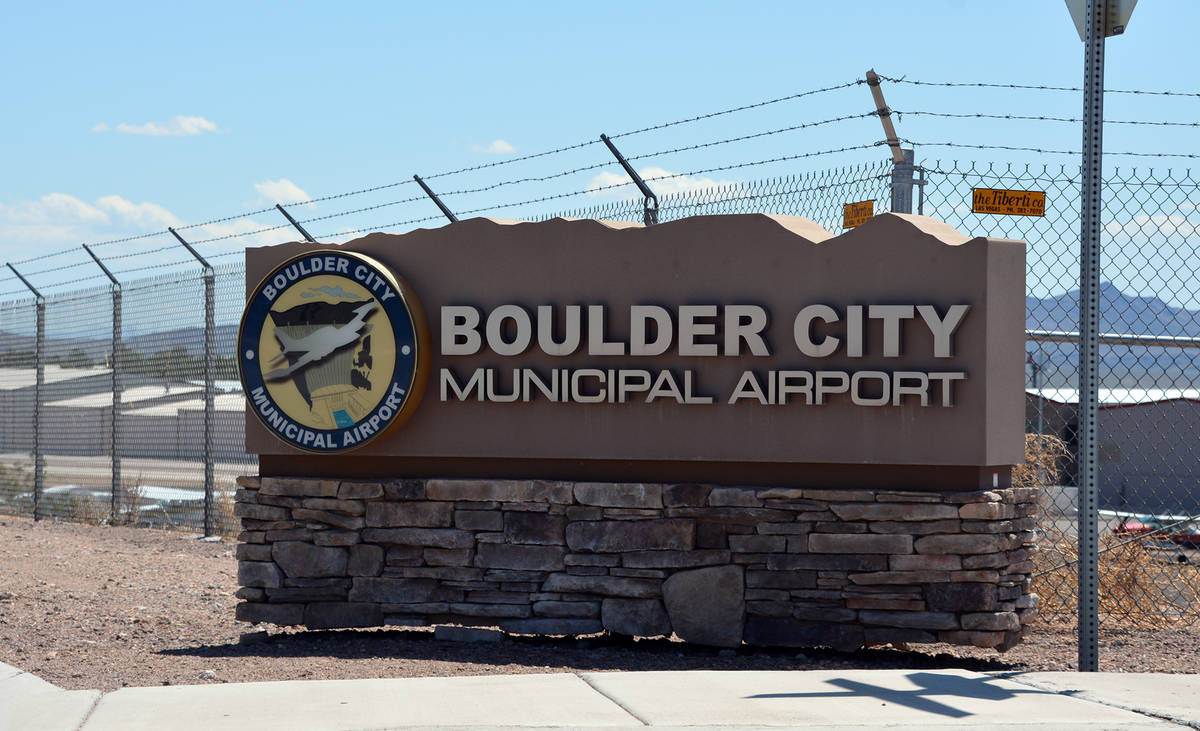Need for more data fuels action
City Council is requesting more information before it approves new fuel dispensing and handling standards for the Boulder City Municipal Airport.
At a special meeting Tuesday that lasted nearly four hours, council unanimously approved holding the standards in abeyance to allow staff to research questions and concerns and attempt to present the proposal to the Airport Advisory Committee.
The new fuel guidelines set a 4,000-gallon limit for any certified refueling vehicle, require certain training and certification for people handling fuel and better explain industry standards.
Airport Manager Willy Williamson said the refueling vehicles should have the fuel tank “permanently affixed.”
“It’s the tank that sits on top of a truck,” he said.
He said the standards would not affect the general aviation public and were created to make the airport safer. He also said they had nothing to do with the fuel farm management and were not directed at anyone or anything in particular.
“From the fire department’s standpoint, it’s a risk management issue,” added Fire Chief William Gray.
Gray said the flammable nature of aviation fuel poses a risk to the airport and the community, and council needs to determine how much risk it is willing to take.
Councilman James Howard Adams asked whether the risk was mitigated because there are fewer people and operations currently at the airport.
“No,” said Gray. “The fuel is still there. The risk is still there.”
Councilwoman Tracy Folda said she was concerned because there were some differences between the proposal and city code about who had authority over the airport. She wanted some clarification.
She also said she wanted more information about the city’s definition of fuel storage, how permits would be issued and what checks and balances would be put in place to make sure the city followed its rules for the fuel farm.
Councilwoman Claudia Bridges said the issue of these standards had become “quite muddy” due to how they were initially adopted and a current District Court case involving the city and BFE LLC, a fixed-base operator at the airport.
The case involves BFE being allowed to use its two 10,000-gallon fuel tankers.
“It bothers me that they jumped over … working with the Airport Advisory Committee,” she said.
The standards were initially adopted March 25 by City Manager Al Noyola while the city was under a state of emergency due to the public health situation from COVID-19.
During a declared emergency, the city manager may perform and exercise necessary functions, powers and duties to secure and protect the public.
In a 3-2 vote, council failed to ratify the standards at its April 14 meeting.
Bridges said she was “not convinced” it was an emergency to approve the standards, but that they are a “necessary document.”
Councilwoman Judy Hoskins said she wasn’t sure which was safer: a business having three 4,000-gallon fuel trucks or one 12,000-gallon truck. She also said she thought the advisory committee should have been part of the process.
Mayor Kiernan McManus said the business impact statement provided by staff saying the standards would not impact any business was wrong.
“That isn’t reality,” he said. “This is clearly going to impact businesses out there.”
He also questioned why this wasn’t brought before the Airport Advisory Committee at its Feb. 4 meeting.
“That’s a huge miss in my opinion,” he added.
He asked Noyola whether the emergency process was about a single tanker at the airport.
“That was the last issue, but there have been a number of issues before then that were expressed,” Noyola said.
Additionally, McManus said it would be a “tremendous burden” to implement the new standards right now because they would require the operators to have more training and purchase new equipment while they are all shut down.
Proposed Airport Fuel Stand... by Boulder City Review on Scribd
Contact reporter Celia Shortt Goodyear at cgoodyear@bouldercityreview.com or at 702-586-9401. Follow her on Twitter @csgoodyear.




















